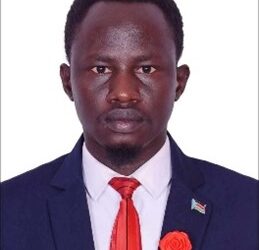South Sudan’s public universities, military, and police forces are facing serious challenges that threaten to cripple these institutions if not urgently addressed by the government.
These centers of learning, discipline, and public service play a critical role in shaping society, yet they find themselves in dire straits.
The public universities, including the University of Juba, University of Bahr-el Ghazal, University of Rumbek, University of John Garang, and University of Upper Nile, are government-funded for staff salaries, benefits, and operational costs. It is the government’s clear responsibility to adequately resource these institutions. While the universities supplement their budgets through student tuition, this is meant to support development, not replace the government’s core funding obligations.
Regrettably, the government’s inaction in meeting the demands of these universities has left staff and lecturers in a state of desperation. They have repeatedly petitioned the government to pay salaries and benefits according to the agreed-upon structures but to no avail. The former Vice Chancellor of the University of Juba, Professor John Akec, then went public with his meagre salary of 770,000 SSP (approximately $555) as a desperate cry for help.
This situation should alarm the country’s leadership, who fought for South Sudan’s independence. What was the purpose of the liberation struggle if not to provide a better future for citizens? Yet now, civil servants – the backbone of public institutions – are being forced to beg for what is rightfully owed to them.
The government must recognize that public opinion overwhelmingly supports the universities’ demands. Any strike or mass resignation would have a devastating impact on the academic futures of thousands of students. The Ministry of Finance and Planning must act swiftly to resolve this crisis before it escalates further.
It is concerning that while politicians are gearing up for upcoming elections, diverting resources to finance their campaigns and make lavish promises, they seem unwilling or unable to address the pressing needs of civil servants in the present. Citizens are watching, and they will remember those who failed to deliver when it mattered most.
My appeal to the government is clear: take the plight of civil servants seriously, as they too have sacrificed for the freedom of this nation. Fulfil your obligations to public institutions and their hardworking employees. The future of South Sudan depends on it.
Be right there!
God Bless South Sudan




